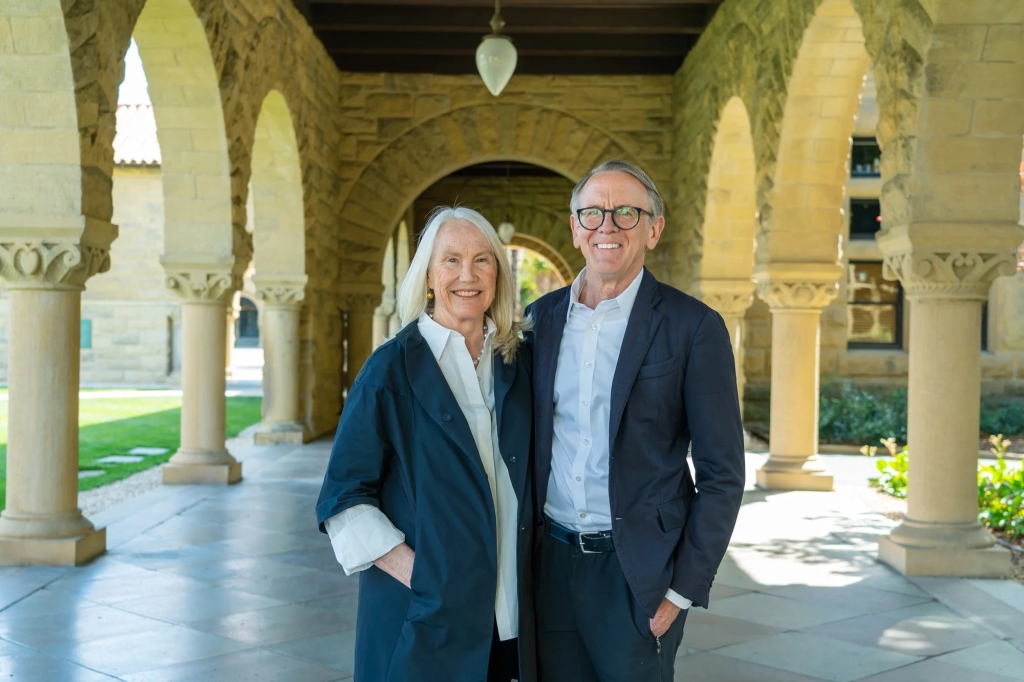Silicon Valley venture capitalist John Doerr, an early investor in Google, Amazon and other leading tech companies, and his wife, Ann, have agreed to donate $1.1 billion to Stanford University to set up a new school devoted to the study of climate change and its solutions.
The gift, announced Wednesday, is the largest in Stanford history. It ranks as the second largest donation to any university in American history, behind $1.8 billion that former New York City Mayor Michael Bloomberg gave to his alma mater, Johns Hopkins University, in 2018.
The school is expected to propel Stanford, which already has considerable facilities researching energy and the environment, to the forefront of climate research among the world’s universities. It will be called the Stanford Doerr School of Sustainability.
“Stanford is making a bold, actionable, and enduring commitment to tackle humanity’s greatest challenge, and we have deep conviction in its ambition and abilities,” said John and Ann Doerr in a statement.
Doerr, 70, of Woodside, was listed as the 146th richest person in the world in the Forbes 2022 list of wealthiest people, with a net worth of $12.7 billion. A St. Louis native, he earned degrees in electrical engineering from Rice University then a Harvard MBA in the 1970s. He came to the Bay Area with no job, then was hired by Intel in 1974, working as a salesman and obtaining several patents for memory devices.
He left in 1980 to join Kleiner Perkins, a venture capital firm on Sand Hill Road in Menlo Park. Since then, he rose to become chairman, helping lead early investments into companies like Google, Amazon, Sun Microsystems, Compaq, Netscape, DoorDash and Slack.
Ann Doerr is chair of Khan Academy, a non-profit educational organization based in Mountain View that provides video lessons on math and other subjects. She also is a former board member and current advisory board member of the Environmental Defense Fund, and former trustee of Rice University.
In addition to the Doerr’s gift, Stanford also received a staggering $590 million for the new climate school from other donors, many of them tech titans. Among them are billionaire Jerry Yang, the former CEO of Yahoo! and his wife Akiko Yamazaki; along with David Filo, co-founder of Yahoo! and his wife, Angela; the William and Flora Hewlett Foundation, and Susan Orr, daughter of Hewlett Packard co-founder David Packard, and her husband Lynn Orr, a professor of engineering emeritus at Stanford.
The school’s academic departments will launch next year with about 90 existing faculty members from Stanford. The university will add 60 faculty more over the next 10 years, hiring experts in energy, climate science, sustainable development and environmental justice.
Because of the burning of fossil fuels, which trap heat in the atmosphere, the Earth’s climate is steadily warming. The 10 hottest years since 1880 when modern temperature records began have all occurred since 2005, according to NASA and NOAA, the agency that runs the National Weather Service.
Hotter temperatures have led to an increase in wildfires, more severe droughts, sea level rise and other growing problems. California has led efforts to reduce fossil fuel burning, passing laws that mandate renewable energy like solar and wind, and providing tax breaks and other incentives for electric vehicles. The state’s emissions peaked in 2004.
But other states and federal leaders have done little or opposed efforts to reduce coal, oil and other fossil fuels — mostly Republicans like former President Trump, who denied the science and said that climate change was a Chinese hoax to harm to American economy.
In the most recent Gallup poll on environmental issues, in March, public concern about the quality of the environment was near a two-decade high, with 44% of Americans worrying “a great deal” about it. The rest said they worried “a fair amount” (27%) or “only a little” or “not at all” (28%). Democrats and independents said they were more concerned than Republicans did.
Asked which environmental issues they were most concerned about, water pollution, air pollution and the extinction of plant and animal species ranked higher than climate change.
As a result, some skeptics said huge gifts to universities aren’t enough.
“I don’t see how giving a billion dollars to a rich university is going to move the needle on this issue in a near-term time frame,” David Callahan, author of “The Givers: Wealth, Power, and Philanthropy in a New Gilded Age” told the New York Times on Monday when asked about Doerr’s gift. “It’s nice that he’s parting with his money, but that billion dollars could be better spent trying to move this up on the scale of public opinion. Until the public sees this as a top tier issue, politicians are not going to act.”
The new school’s dean will be Arun Majumdar, who currently works at Stanford as a professor of mechanical engineering and materials science. Majumdar is a former vice president for energy at Google, has a PhD in engineering from UC Berkeley, and served as undersecretary for energy in the Obama Administration.
“The Stanford Doerr School of Sustainability will not only harness the intellectual horsepower of our students, faculty, and staff across our campus,” Majumdar said, “but also partner with external organizations around the world to co-develop innovative solutions and identify new insights through research and education. As is often said, we do not inherit the Earth from our ancestors, we borrow it from our children. We must create a future in which humans and nature thrive together.”









